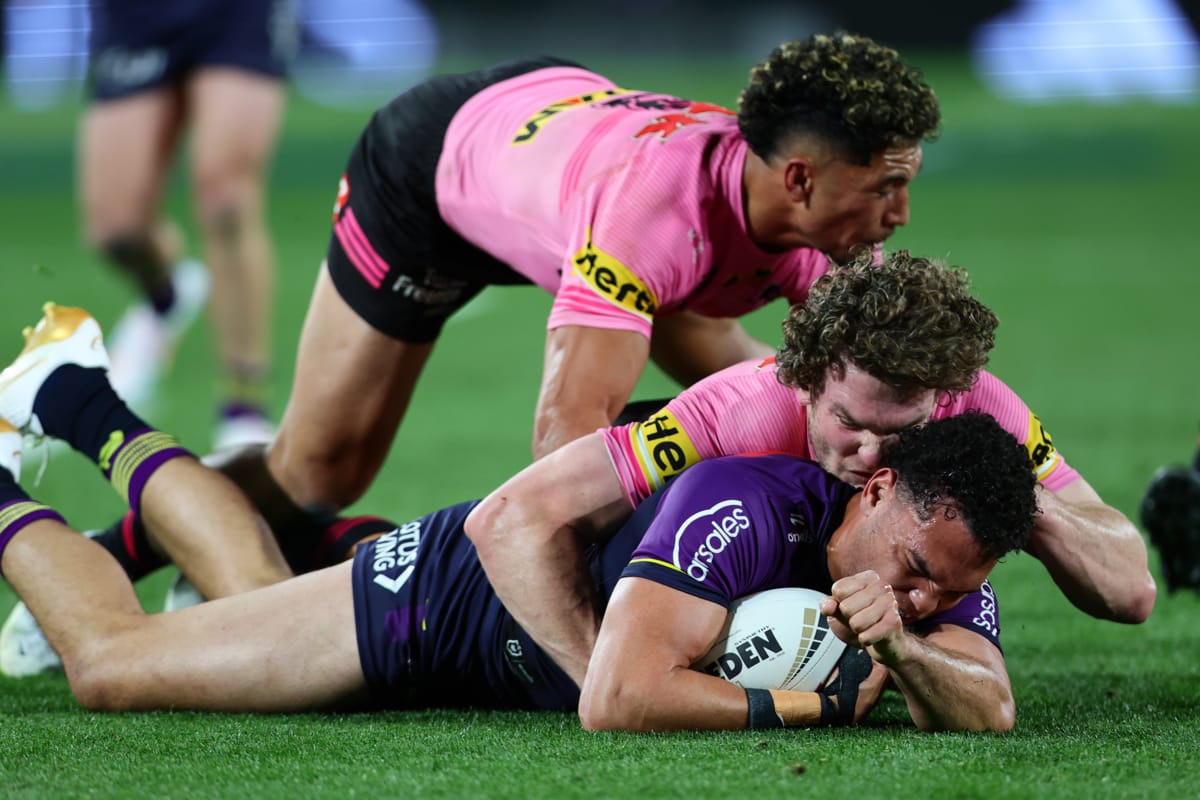New details have come to light on the highly anticipated bid for Papua New Guinea to field a team in the National Rugby League competition, which presently features across Australia and New Zealand. Scrutiny this year has focused on the $600 million undertaking by the Australian government to back the inclusion of a PNG team over the next decade. More recently, the ABC reported that the agreement for Australian support would contain a clause that precludes PNG from increasing security relations with China, which seemingly affirms what was already heavily speculated.
A reported breakdown of funding bundled up with the deal would see $60 million being spent on a license fee to the other 17 clubs ahead of PNG’s inaugural season. The remaining $540 million will then be shared in PNG between the football operations ($290 million) and education and social welfare programs ($250 million).
The grandiosity of this deal only seems to promise similar style bids in the future.
It is clear the deal will face greater scrutiny when finances are fully revealed, and a potential comparison can be made on where such funding may have otherwise been applied. This contrasts to limited scrutiny over deals where the value of the cooperation is not easily quantifiable or disclosed – such as cooperation in security, climate change, and even governance (where the majority of Australian official development assistance is earmarked for in PNG).
A multitude of unanswered questions remain for this sporting deal, and if the latest news confirms the geopolitical intent, might PNG have received more than a rugby team? Why even prioritise a rugby franchise over PNG’s socioeconomic challenges which still require major attention?
It is important to note this isn’t necessarily a question of opportunity cost where other areas of aid areas are being sacrificed, as financing for the PNGNRL Bid is external from Australia’s official development assistance to PNG. Instead, the bigger question is how could Papua New Guineans ensure more equitable outcomes from future geopolitical negotiations?

Consider that it has cost Australia less than $4 million to build a double classroom through its Kokoda initiative. That package included eight new fully furnished double classrooms, five classroom building upgrades and nine new staff houses. This included all building materials, labour, logistics and furnishings. Seven construction workers from each village were employed on the project, contributing to the development of local trade skills and injecting funds into the local economy. To provide clean water, a 9000-litre water tank has been attached to each building.
These classrooms contribute to the learning environment of over 140 elementary and primary students.
Reallocation of the $600 million NRL bid financing could fund another 150 similar projects across the country, with change to spare. That would be enough to build six similar facilities in each of PNG's 22 provinces.
The same reallocation could be applied toward health priorities through the construction of health centres, such as the Mabudawan Health Centre in the Western Province. The roughly $6.3 million project could be replicated almost 95 times across other wards, nationwide.
Instead of raising questions about accountability only during election periods, a greater emphasis and attitudinal change is needed to question all decisions being made.
Rugby league is a popular game in PNG. But the grandiosity of this deal only seems to promise similar style bids in the future, despite the risk of continual misalignment to PNG’s domestic needs. If the pursuit of a rugby league franchise can be financed outside of the official aid budget, why isn’t this momentum being carried over to service the socioeconomic needs of the greater population of Papua New Guinea?
Former prime minister Peter O’Neill is convinced that Australia, as PNG’s key development partner, has the responsibility to review its approach to ensure benefits are felt by more Papua New Guineans. But the main responsibility lies with PNG to be accountable for the deals it accepts. The PNG government must prioritise its engagements to align with the needs of its population and ensure that maximum benefits are derived.
With the uptick of geopolitical competition in the region, Pacific countries have scrambled to make the most of the opportunities, accepting most deals being offered. Power dynamics have now shifted towards Pacific countries, who now realise they have the power to determine the pace and form of diplomatic dealings.
Geopolitics is thus a demand-driven process; with resourcing being funnelled to where the receiving country determines. If there is dissatisfaction with such decisions, it speaks more to the dynamics of a disconnect between decisions-makers, and the realities of the “intended beneficiaries”.
Part of this responsibly must be borne by the ordinary Papua New Guinean, for failing to hold their elected leaders to account. Instead of raising questions about accountability only during election periods, a greater emphasis and attitudinal change is needed to question all decisions being made for their wellbeing (not only those of a geopolitical nature).
If Australia’s Foreign Minister Penny Wong’s invocation of a “permanent contest” in the Pacific indicates the potential for more deals of this nature, Papua New Guineans, and other Pacific Islanders, must recognise the power they wield in determining the form of assistance they receive. If leveraged properly, geopolitical engagements can be injected as a tool for tangible growth and development.


